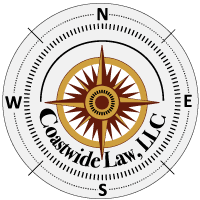Divorce Attorney
Although this statistic has been disputed, it has been published that 50% of first marriages end in divorce, 60 – 67% of second marriages end in divorce, and 70 – 73% of third marriages end in divorce.
Divorce Attorney
Although this statistic has been disputed, it has been published that 50% of first marriages end in divorce, 60 – 67% of second marriages end in divorce, and 70 – 73% of third marriages end in divorce. Whatever the true percentage may be, it is a fact of life that sometimes families, for a variety of reasons, break apart. While many factors including the length of the marriage, division of the assets, and the number of children can impact the Court’s decisions in the divorce proceeding, the following are general issues addressed by the Court during a divorce proceeding.
- “Child custody” issues will include the physical custody of where the children will live, with legal custody involving the “decision-making” power over the children. The Court uses factors, called the Albright Test, to determine whether custody should be awarded to one or both parents jointly.
- “Child Support” issues concern that amount of money one parent must pay to the other parent (often the main caretaker of the child).
- “Alimony” is the amount of money one spouse is ordered to pay to the other spouse, including periodic, lump sum, and rehabilitative alimony.
- “Modification” refers to applying to the Court for a change in custody or support after conditions change following the divorce. Commonly such change is brought about because of the loss of a job, change in the needs of the children, or remarriage by one of the parties.
We can help you assess the different grounds for divorce, and give you guidance in what to expect.
Conservatorships / Interdiction are legal proceedings where another person is appointed over the person to help, usually by controlling their assets and/or medical decisions. If you notice any of the above signs, please contact us to discuss how you can help and protect your loved one.
Power of Attorney
People often request a legal document called a “Power of Attorney” (“POA”) where they name someone else to act on their behalf or they put someone else’s name on their financial accounts. We can draft a Power of Attorney, but I want to warn of a couple of dangers associated with putting someone’s name on your financial accounts or a POA document. First, if you put someone’s name on your account or give them the power to control your financial accounts in a POA, it is the same as giving that person ownership of the account. That person can do anything that you can do with your assets, including

